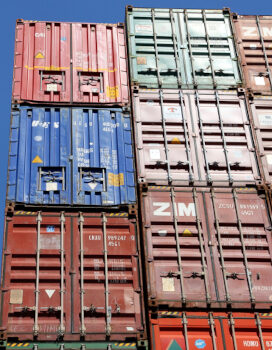Since 1 July 2020, new rules on chain transaction taxation have been in force in Poland in connection with Council Directive (EU) 2018/1910 of 4 December 2018. The new rules are aimed at harmonising the settlement of chain transactions across the EU.
On 1st July, the regulations implementing the provisions of the EU Directive 2018/1910 (the so-called quick fixes package) concerning, among others, the sale of goods using the call-of-stock procedure entered into force. The mentioned directive unified the regulations of EU countries, among other things, with regard to the rules of taxation of supply of goods to other EU countries. Thanks to the new regulations, companies moving products from one EU country to another for later sale will avoid the obligation to additionally register as VAT payers in the country of destination of goods.
The transfer pricing regulations in force since January 2019 have introduced numerous changes in this respect, such as for example:
- new documentation thresholds,
- the obligation for related entities to submit information on transfer prices TPR-C (legal persons) or TPR-P (natural persons) to the Head of the National Fiscal Administration,
- an obligation to make a statement confirming that the transfer pricing documentation has been prepared and that the transactions are carried out on arm’s length principle.
From 1 July 2020 VAT on the import of goods to Poland can be settled directly in the tax declaration. Previously, this required a special permit. The aim of the amendment is to improve the competitiveness of Polish ports, which until now have been losing the battle for the customer with i.a. German and Dutch ports. In these countries, the possibility of non-cash settlement of imports for all taxpayers has been long provided for. The new rules for settlement of the VAT will avoid freezing of funds and will have a positive impact on the financial liquidity of companies.
In connection with the SARS-CoV-2 pandemic, many companies are confronted with problems such as reduced income, production downtime, delays in the supply of materials and raw materials, insolvency of contractors, etc.
In practice, this may lead to situations where the supply chain in transactions with related parties has to be reorganised due to the temporary closure of the plant, lack of staff, the need for longer storage of goods due to lack of transport capacity, etc.
On 23 April 2020, on the pages of the Government Legislation Centre a draft regulation of the Minister of Finance amending the regulation on the exclusion or limitation of the application of Article 26, paragraph 2e of the Corporate Income Tax Act was published. The draft provides for another, already fourth postponement of the entry into force of the new withholding tax collection mechanism, this time to 31 December 2020.
Have you been punished for irregularities in VAT settlements with a mandate in Poland? Even if you accept this fine, failure to complete the necessary formalities on time may expose you to further problems.
Do you sell goods or services in Poland and have not yet registered for VAT in Poland? Or maybe you make purchases in Poland and have not deducted the tax? Do not hesitate!
An entity conducting VAT-taxed activity in Poland shall report it in advance. However, failure to make such a notification on time does not release you from the obligation to submit tax returns and settle the VAT.
Advanced pricing agreements are a type of agreement with the head of the National Revenue Administration in which it was agreed that the amount and method of calculating the price applied in transactions between the companies of the group would correspond to the market price. The provisions governing the receipt of the agreement are amended, which means the following:
Withholding tax is a tax that is generally paid by Polish companies (tax payers) in connection with the certain payments to foreign companies, including the payment of dividends (19%), interest (loan or credit) or remuneration for consultancy services (20%). Previous regulations allowed for the exemption of such payments from withholding tax in Poland or were subject to a reduced rate of withholding tax (e.g. 5% or 15%), provided certain legal requirements were met. From 01/07/2020 similar rules will apply, but with other important changes.










